Roof and Deck Coating: Save Money on Your Heating Bill and Extend Your Roof's Life
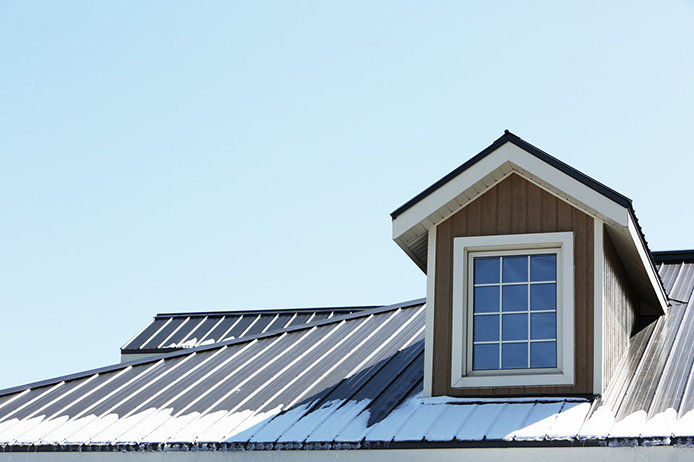
When you're a homeowner, preparing your home for winter extends beyond sealing windows and changing furnace filters. Properly winterizing your home should also include coating your roof, deck, or patio to reduce heat transfer, increase energy efficiency, mitigate leaks, and help you save money on heating costs and home repairs.
Although roof and deck coating manufacturer specifications vary, roof coatings are generally best applied when the ambient air temperature is 50oF (10oC) with no rain forecasted for the next 24 hours. For most homeowners, fall is the perfect season to coat their roof, deck, and patio.
To help you prep your home for winter and increase your home's energy efficiency, we've answered eight common homeowner questions about coating roofs, decks, and patios.
1. What are roof and deck coatings?
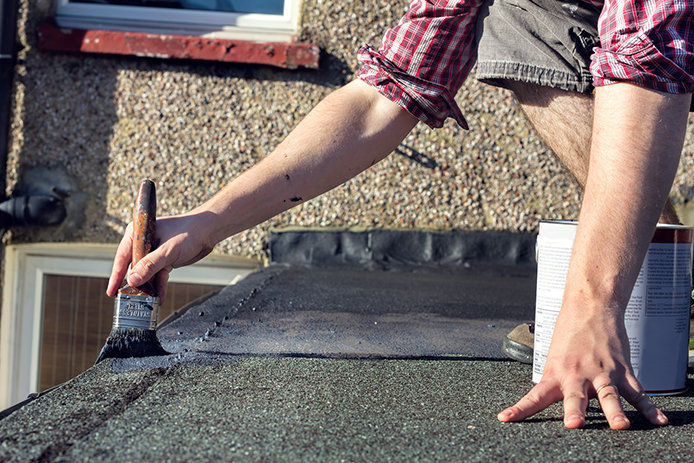
Roof and deck coatings are reflective coatings that help extend the life of roofs, decks, and patios by reducing heat transfer, decreasing thermal shock (which is the expansion and contraction of roof membranes in response to changing temperatures), and mitigating leaks. Several types of reflective roof, deck, and patio coatings exist, but the most common types of coatings are referred to as 'white coatings' and are typically silicone, polyurethane, or acrylic based. Popular roof, deck, and patio coatings, like those offered by coating manufacturers like Gacoflex, are designed to promote roof, deck, and patio longevity.
2. Why should I invest in roof and deck coatings?

By reducing heat transfer, decreasing thermal shock, and mitigating leaks, roof and deck coatings can help extend the lifespan of your roof, deck, and patio by 10 years or more. Although individual household energy savings depends on your location's climate, current home insulation, and electricity costs, roof coatings can also generate cost benefits in the form of energy and heat savings - the less heat your roof loses, the lower your heating bill.
3. Should new roofs and decks be coated?
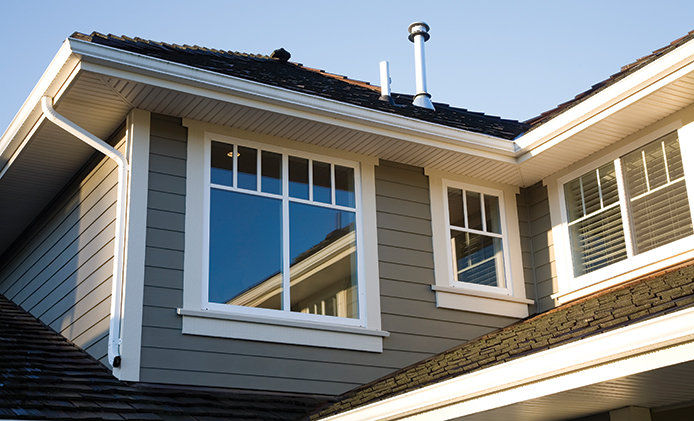
Roofs, decks, and patios, new and old, can all benefit from coating. Coating a new roof, deck, or patio will help protect it from harsh elements, temperatures, and pinhole leaks, increasing both its lifespan and its energy efficiency.
4. How do I know what kind of coating my roof needs?
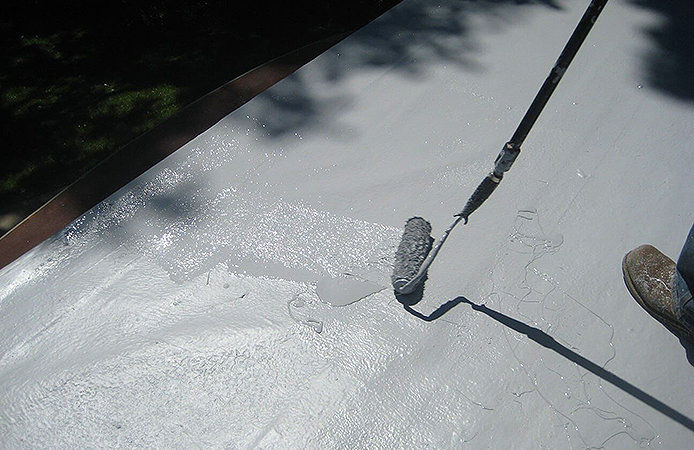
The proper coating product for your roof depends on the slope of your roof and your local climate. Coating manufacturers like Gacoflex design products for both low-slope and steep-slope roofs. You can get a better understanding of your specific roof coating needs through independent, non-profit organizations like the Cool Roof Rating Council (CRRC), which distributes information about 'cool roofs' to home and building owners and architects, and maintains a third-party rating system that measures reflective and radiative properties of roof surfacing materials.
6. How long does it take for coatings to cure?
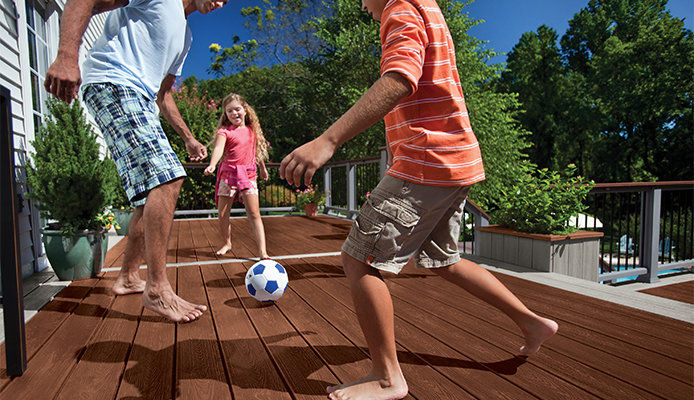
Air temperature, wind, humidity, roof surface temperature, and coating color all impact a coating's dry time. Generally, common roof coatings should cure in rainless environments within 24-36 hours. Check your manufacturer's label to confirm your coating's curing time.
7. How do I maintain coatings?
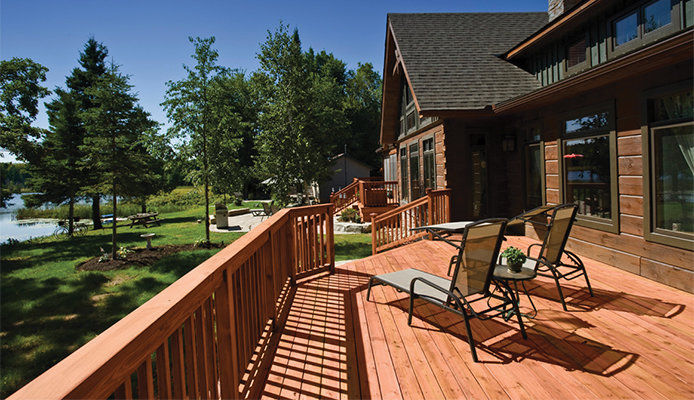
The reflective power of roof and deck coatings can diminish over time. Typically, roof and deck coatings' solar reflectance decreases 10-15% over three years. If you notice increases in your heating bill or find any leaks, you should inspect your home's surfaces and consider re-coating your roof, deck, or patio. As a homeowner, you should also inspect your roof, deck, and patio semi-annually, and after major storms or high winds. If your coating has been damaged, you may need to apply additional coating.
8. Are there any government programs or tax incentives associated with coatings?

Certain programs and incentives encourage household energy efficiency through processes like roof coating. The US-government sponsored Energy Star program may help offset your roof coating costs if your chosen coating meets specific solar reflectance criteria. As of 2017, eight Gacoflex roof coating products are Energy Star certified and qualify for Energy Star rebates. For a fee, associations like the Roof Coating Manufacturers Association (RCMA) offer customized search tools that help you find up-to-date listings of financial incentives.
Typically, roof, deck, and patio coatings can be classified as home maintenance, and may be tax deductible during the year the coating is completed.
Even if you're not ready for winter, your home can be with a new coating. Fall offers the best weather for applying roof, deck, and patio coatings, making now the perfect time to start protecting your home from harsh elements, increasing your energy efficiency, and growing your savings.
Resources:
- Roof Coatings Manufacturers Association (RCMA)
- Cool Roof Rating Council (CRCC) – Information for Home and Building Owners
- Energy Star – Roof Products
- To find more ways to save money and support your home's efficiency, you can search the DSIRE database: Database of State Incentives for Renewables and Efficiency